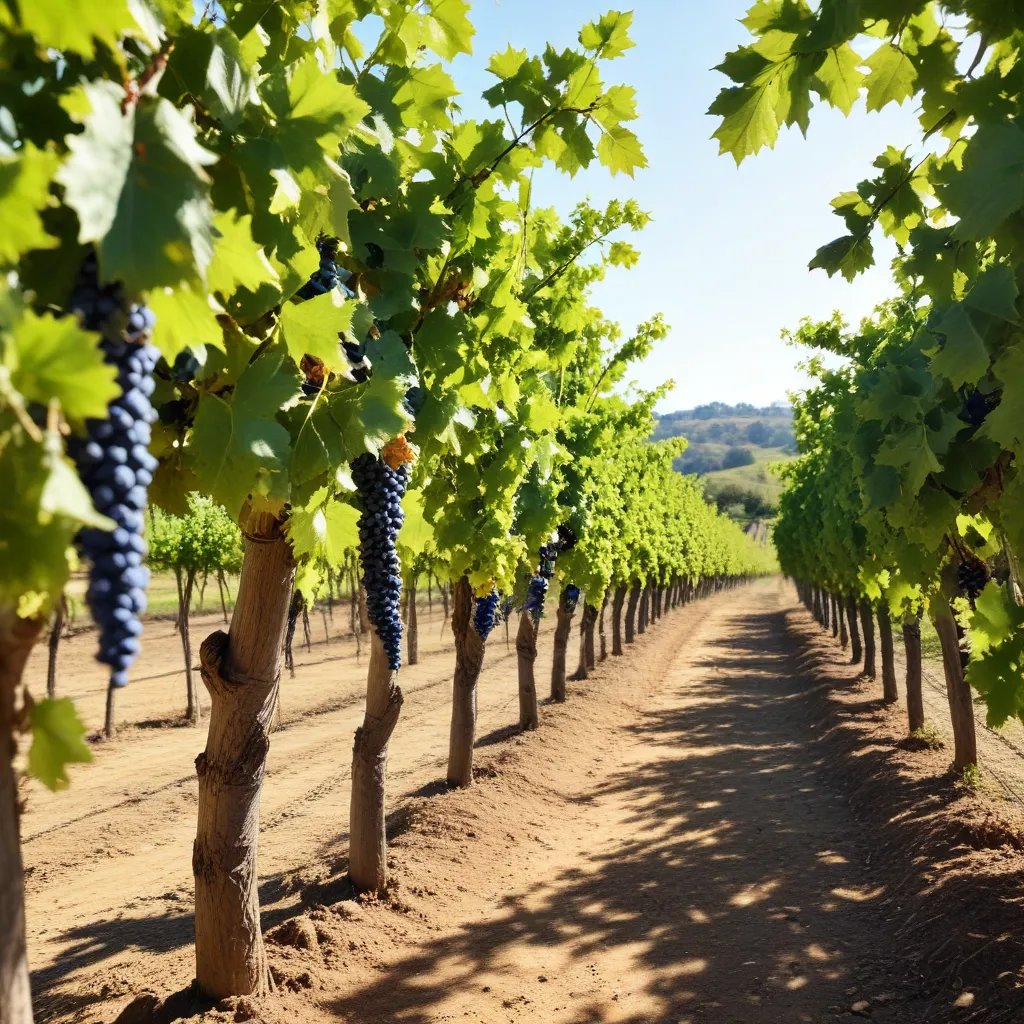
As stewards of the land, winemakers are increasingly embracing sustainable practices to minimize their environmental impact. At the Wine Garden Inn, we recognize the importance of preserving our precious natural resources, especially in the face of growing concerns over water scarcity. In this comprehensive article, we delve into the realm of sustainable winemaking, exploring the eco-conscious initiatives that wineries like Wiens Cellars are implementing to reduce water usage in the vineyard.
Water Conservation Strategies
Water is a vital and precious resource in the winemaking process, from nourishing the vines to maintaining optimal growing conditions. Sustainable winemaking involves a multifaceted approach to water conservation, ensuring that every drop is utilized efficiently.
Precision Irrigation Systems
One of the most impactful water-saving measures in the vineyard is the implementation of precision irrigation systems. These advanced systems employ sophisticated technologies, such as soil moisture sensors and weather data monitoring, to precisely regulate the amount of water delivered to the vines. By tailoring irrigation schedules to the specific needs of the plants, winemakers can avoid over-watering or wasteful runoff, thereby conserving precious water resources.
Cover Crops and Mulching
Another effective strategy for water conservation is the use of cover crops and mulching. Cover crops, such as legumes or grasses, are planted between the vine rows to help retain soil moisture, suppress weeds, and improve soil structure. Mulching, the practice of applying a protective layer of organic material around the vines, further enhances water retention by reducing evaporation from the soil surface.
Canopy Management Techniques
Winemakers also employ canopy management techniques to optimize water usage. By carefully controlling the density and orientation of the vine canopy, they can regulate the amount of sunlight and wind exposure, which in turn influences the vines’ water needs. This targeted approach helps to ensure that the grapevines receive just the right amount of hydration, contributing to the concentration and balance of flavors in the grapes.
Vineyard Soil Health
Maintaining the health and fertility of the vineyard soil is essential for sustainable winemaking, as it directly impacts the vines’ water-use efficiency.
Organic Soil Amendments
The incorporation of organic soil amendments, such as compost or manure, helps to improve the soil’s water-holding capacity and nutrient content. These natural additives not only enrich the soil but also support the growth of beneficial microorganisms, creating a thriving, biodiverse ecosystem that is better equipped to withstand drought conditions.
Reduced Tillage Practices
Many sustainable wineries have also adopted reduced tillage practices, minimizing the disturbance of the soil through techniques like no-till or low-till farming. By preserving the soil’s natural structure and reducing compaction, these methods enhance the infiltration and retention of water, reducing the need for irrigation.
Biodiversity Enhancement
Sustainable winemakers understand the importance of biodiversity in the vineyard. By incorporating native plants, hedgerows, and wildlife-friendly habitats, they create a balanced ecosystem that supports beneficial insects, pollinators, and other organisms. This biodiversity, in turn, can contribute to the overall water-use efficiency of the vineyard, as the various species work together to maintain the delicate balance of the land.
Renewable Energy Integration
Sustainable winemaking extends beyond the vineyard, encompassing the winery’s operations as well. One key aspect of this holistic approach is the integration of renewable energy sources to power the winemaking process.
Solar Power Installation
Many wineries, including the Wine Garden Inn, have invested in solar power installations to harness the abundant sunshine that graces their vineyards. By generating clean, renewable energy on-site, these wineries reduce their reliance on traditional, water-intensive power sources, further minimizing their environmental footprint.
Biofuel Utilization
In addition to solar power, some wineries have also explored the use of biofuels derived from agricultural waste, such as grape pomace or other organic matter. By repurposing these byproducts, wineries can reduce their overall energy consumption and greenhouse gas emissions, while also contributing to a more circular economy.
Energy-Efficient Equipment
Sustainable wineries also prioritize the use of energy-efficient equipment throughout their operations. From high-performance fermentation tanks to cutting-edge bottling lines, these technologies help to optimize energy usage and minimize the winery’s water footprint, as energy-efficient systems often require less water for cooling and cleaning.
Waste Reduction Initiatives
Sustainable winemaking also encompasses a commitment to reducing waste and repurposing byproducts, further enhancing the industry’s environmental stewardship.
Grape Pomace Repurposing
One notable example is the repurposing of grape pomace, the leftover skins, seeds, and stems from the winemaking process. Wineries like Wiens Cellars have found innovative ways to utilize this agricultural waste, transforming it into valuable compost, animal feed, or even biofuel, thereby minimizing landfill disposal and creating a more closed-loop system.
Winery Wastewater Treatment
Sustainable wineries have also invested in wastewater treatment systems to ensure that the water used in winemaking is properly cleaned and recirculated. By implementing on-site treatment facilities, wineries can reduce their reliance on municipal water sources and minimize the discharge of potentially harmful effluents into the environment.
Recycling and Upcycling
Sustainability-minded wineries also prioritize recycling and upcycling initiatives, finding creative ways to repurpose materials that would otherwise end up in landfills. From repurposing used barrels as planters or furniture to implementing refillable wine containers, these efforts help to reduce waste and encourage more eco-conscious consumer behavior.
Sustainable winemaking is not just a passing trend; it’s a holistic approach that ensures the long-term viability and environmental stewardship of the wine industry. By embracing water conservation strategies, nurturing healthy vineyard soils, integrating renewable energy, and reducing waste, wineries like the Wine Garden Inn are leading the charge towards a more sustainable future.
As we raise our glasses to toast the exceptional wines produced through these eco-conscious practices, we are also celebrating the preservation of our precious natural resources and the commitment to a more harmonious relationship between winemaking and the environment. Together, we can cultivate a wine industry that not only delights our palates but also honours the delicate balance of our planet.
